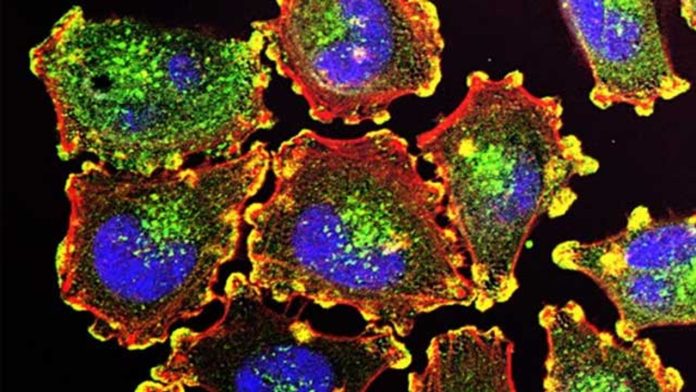Cancer research at UCLA’s Jonsson Comprehensive Cancer Center continues at a blistering pace. The center’s latest breakthrough is the development of a triple combo drug treatment for melanoma. Each year, an estimated 70,000 new cases of metastatic melanoma are diagnosed each year in the US, and among those 8,000 will die of the disease. The results of the new study appeared online in the journal Science Translational Medicine. The researchers note that approximately 50% of melanoma patients (35,000 per year) have a mutated protein called a BRAF mutation. This mutation often allows the malignancy to develop resistance to many drug treatments.
The new study was led by UCLA Jonsson Comprehensive Cancer Center member Antoni Ribas, MD, PhD and colleague Siwen Hu-Lieskovan, MD, PhD. They combined targeted therapies that used a BRAF inhibitor (dabrafenib) and a MEK inhibitor (trametinib) with immunotherapy. The combination of the three was found to be a more effective treatment because it sensitized the patients’ own immune system to boost immunotherapy; in addition, it reduced the likelihood of the cancer developing resistance. The researchers note that, compared to a previous drug combination therapy, their findings mark a significant advance. The previous therapy combined a BRAF inhibitor (vemurafenib) with immunotherapy; however, it had a serious side-effect: it caused serious liver toxicity in some patients, and over time, the therapy became less effective because resistance developed.
“The two drug combination of BRAF and MEK inhibitors works synergistically and decreases the side effects of the BRAF inhibitor or normal cells. We reasoned that this combo would allow us to synergize with immunotherapy without increasing toxicities,” explained Dr. said Ribas. He added, “We have made incredible progress in the last three years of treating advanced melanoma, with six new drug therapies approved by the FDA. Half are immunotherapies and the other half are BRAF or MEK inhibitors. The next step is to figure out how to rationally combine them and merge their benefits in the clinic.”
Dr. Hu-Lieskovan added, “The triple combination of targeted therapies BRAF (dabrafinib) and MEK (trametinib) inhibitors with immunotherapy (tumor antigen-specific adoptive cell transfer or anti-PD1 antibody) makes immune therapy more effective at killing cancerous tumors and causes less toxicity. We’re trying to take advantage of the high response rate of the targeted therapy and durability of the immune therapy to induce a response that lasts in the majority of patients.”
The two researchers have begun two clinical trials to assess the effectiveness of the triple combination therapy in advanced melanoma patients. They plan to present their initial findings at the American Society of Clinical Oncology (ASCO) annual meeting.















